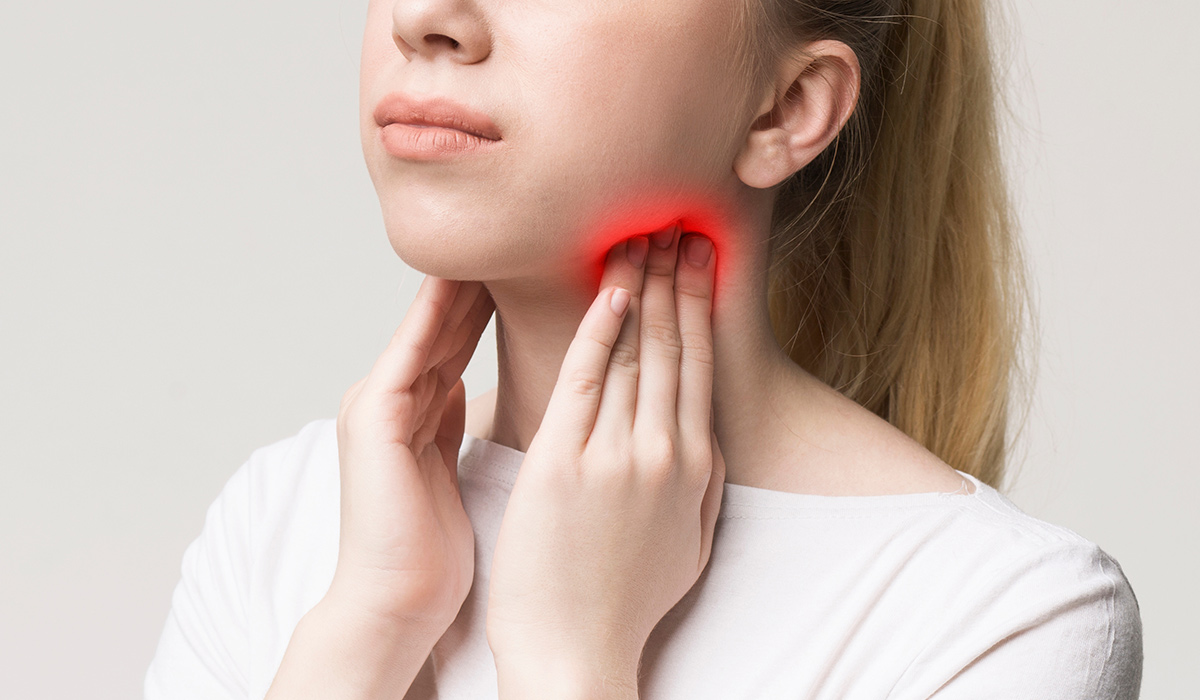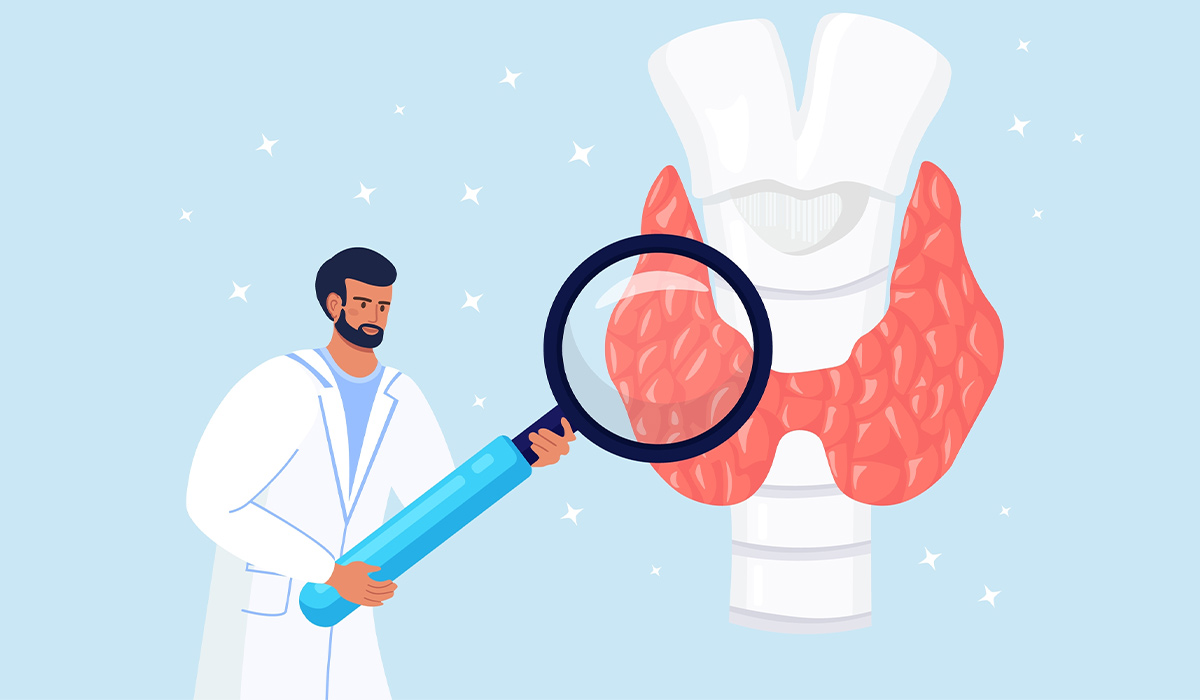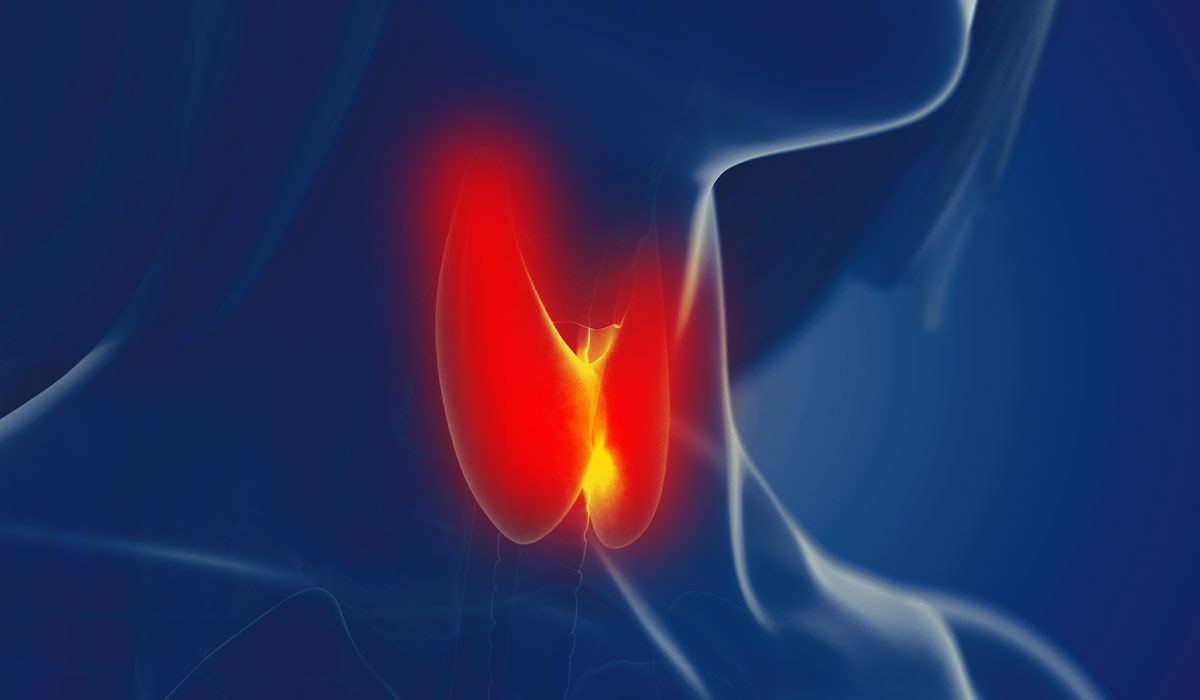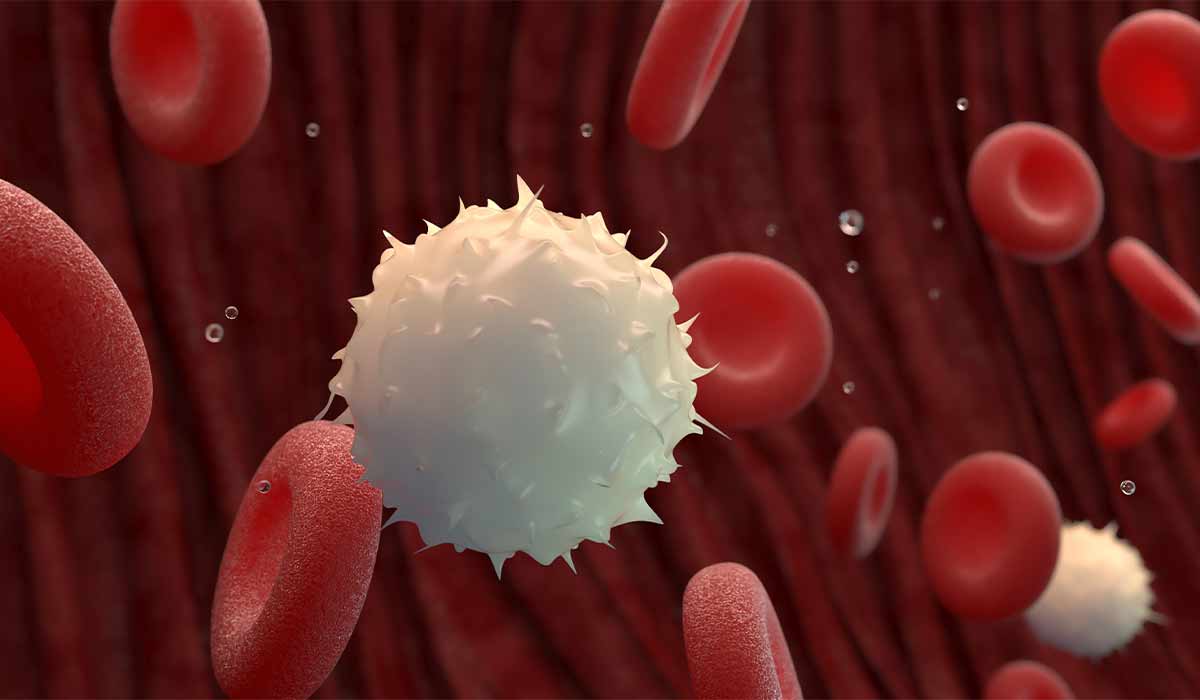Immune response disorders significantly influence the development of Hashimoto's. Our immune system erroneously produces antibodies against the thyroid proteins peroxidase and thyroglobulin (TPO or Tg).
The antibodies destroy the thyroid gland similarly as they destroy a foreign pathogen. The inadequate functioning of the thyroid gland leads to an insufficient production of hormones.

If there are genetic predispositions and the environmental “trigger factor” works, Hashimoto's disease can develop at any time in life. Activating factors![]() include:
include:
Moreover, Hashimoto's disease has a genetic basis. If one family member has an autoimmune disease, the rest are more likely to develop it.

While Hashimoto's disease is the leading cause of hypothyroidism![]() , they are not the same condition. A person may have one and not the other.
, they are not the same condition. A person may have one and not the other.
Hashimoto's disease is an autoimmune condition where the body gradually damages the thyroid gland, causing hypothyroidism. A person with early signs of Hashimoto's disease may not have hypothyroidism but may be suffering from an autoimmune attack on the organ.
Hypothyroidism is a condition when there are not enough thyroid hormones. It may be because of removed thyroid glands or low iodine levels in the body. In most cases, you can start hormonal therapy to treat hypothyroidism.

Hashimoto's disease usually lasts for years before the symptoms become so disturbing that we go to the doctor for more thorough verification. They appear gradually and are non-specific, which makes them easy to miss. Among as many as 45 different symptoms that indicate thyroid gland ailments, the typical symptoms of Hashimoto's![]() are:
are:
Hashimoto's disease develops for a very long time. It can manifest itself many years after the appearance of the first symptoms.

Comorbidities are often with Hashimoto's. Patients also suffer from other autoimmune diseases, such as celiac disease![]() or pernicious anemia
or pernicious anemia![]() .
.
Hashimoto's disease also occurs in people with chromosomal disorders such as Down![]() , Turner
, Turner![]() , or Klinefelter Syndrome
, or Klinefelter Syndrome![]() . If you are diagnosed with this thyroid condition, you may be at risk of developing papillary carcinoma or malignant lymphoma.
. If you are diagnosed with this thyroid condition, you may be at risk of developing papillary carcinoma or malignant lymphoma.

Hashimoto's disease predisposes to other conditions that can contribute to having a lower quality of life. If left untreated, it could result in other metabolic conditions. For example, it can lead to insulin resistance![]() (and type 2 diabetes) or celiac disease. Hashimoto's is also associated with high cholesterol, cardiovascular diseases, and hypertension. If these diseases are not treated, they can pose a severe risk to our health or even lives.
(and type 2 diabetes) or celiac disease. Hashimoto's is also associated with high cholesterol, cardiovascular diseases, and hypertension. If these diseases are not treated, they can pose a severe risk to our health or even lives.
Hashimoto's hypothyroidism is often accompanied by infertility problems, such as difficulty getting pregnant![]() , spontaneous abortions, and irregular or anovulatory cycles. This disease is also associated with low libido. In men suffering from Hashimoto's, sperm production is also reduced, and their quality and viability deteriorate. These factors can have a negative impact on fertilization and make it more difficult to achieve pregnancy.
, spontaneous abortions, and irregular or anovulatory cycles. This disease is also associated with low libido. In men suffering from Hashimoto's, sperm production is also reduced, and their quality and viability deteriorate. These factors can have a negative impact on fertilization and make it more difficult to achieve pregnancy.

Before making a diagnosis![]() , the doctor will carefully examine our neck. Often palpation can direct suspicion in the right direction because in Hashimoto's disease, the thyroid gland, which is often annihilated by the body, quickly decreases. And already during the basic examination, the doctor may find that the gland is suspiciously small.
, the doctor will carefully examine our neck. Often palpation can direct suspicion in the right direction because in Hashimoto's disease, the thyroid gland, which is often annihilated by the body, quickly decreases. And already during the basic examination, the doctor may find that the gland is suspiciously small.
Do a blood test to check the level of the TSH (thyroxine) in the blood. If the TSH concentration is too low, you must perform additional tests — thyroid hormones (FT3 and FT4) or anti-thyroid antibodies (TPO, TG, and TRAb). The doctor will also often order an ultrasound of the thyroid gland to look at the gland and check for nodules.
In a situation where everything points to Hashimoto's disease (e.g., the image shown in the ultrasound of the thyroid gland and hypothyroidism diagnosed based on a high TSH level, for example, 40 mU / l), you do not need to perform an antibody test, because it will not bring anything.
The diagnosis of Hashimoto's is not associated with difficulties — it is not cancer that needs to be diagnosed immediately and cut out.

Hashimoto's disease requires symptomatic treatment related to the therapy of hypothyroidism or hyperthyroidism. Unfortunately, despite regular medication, it is not possible to cure Hashimoto's![]() . But thanks to maintaining the appropriate level of hormones, the disease does not interfere with everyday life.
. But thanks to maintaining the appropriate level of hormones, the disease does not interfere with everyday life.
If temporary hyperthyroidism occurs — this situation requires medical attention to adjust the dosage of the medication.
Remember that the dose of the drug is always selected by the doctor, just like the preparation of other drugs in combination therapy. It is significant to monitor the progress of pharmacological therapy by performing laboratory tests and measuring TSH, fT3, and fT4 levels.
In the event of natural hormonal changes in the body (e.g., during pregnancy or using oral contraceptives), it will be necessary to modify the dose.

Hashimoto's disease is associated with a lifestyle change. However, because stress can play a significant role in both its development and course, in addition to the previously mentioned treatment method, it is also recommended to use relaxation methods and develop the ability to rest.
Stress![]() is a natural part of our life, so we cannot avoid it. Moreover, a certain degree of stress is necessary as it serves as a driving force to take action. However, after exceeding the limit of tolerance, stress begins to have a destructive effect on your body. This lead to a wide range of health consequences and may also worsen the course of Hashimoto's disease.
is a natural part of our life, so we cannot avoid it. Moreover, a certain degree of stress is necessary as it serves as a driving force to take action. However, after exceeding the limit of tolerance, stress begins to have a destructive effect on your body. This lead to a wide range of health consequences and may also worsen the course of Hashimoto's disease.

Diet in Hashimoto's disease![]() plays an important role. Lately diagnosed Hashimoto's disease is most often manifested by overweight and often obesity. By the way, many women only notice health problems when the scale shows higher and higher measurements too quickly. Therefore, the basic principle of creating a diet for Hashimoto is to reduce the number of calories consumed.
plays an important role. Lately diagnosed Hashimoto's disease is most often manifested by overweight and often obesity. By the way, many women only notice health problems when the scale shows higher and higher measurements too quickly. Therefore, the basic principle of creating a diet for Hashimoto is to reduce the number of calories consumed.
However, when cutting the caloric content of consumed meals, you cannot overdo it, which is why it is significant to consult a doctor and a nutritionist. Consuming too few calories further impairs thyroid function, paradoxically making the disease worse.
Regular consumption of meals is a rule that, regardless of the disease, affects the preservation of a slim figure. To maintain a healthy diet — divide your daily meals into five portions. Also, it is better to consume them at consistent intervals.
Regularity of eating must become a habit. It affects the maintenance of a constant metabolic rate, which is of great importance in Hashimoto's. It's recommended to eat your final meal of the day 2-3 hours before going to bed.
People struggling with Hashimoto's must pay special attention to the products they include in their diet. Be cautious especially when reaching for carbohydrates. People with Hashimoto's disease often experience issues with insulin and glucose regulation, making it significant for them to consume foods with a low glycemic index.
Simple sugars, i.e., all sweets and highly processed products, should be excluded from the diet. However, it is better to reach for complex carbohydrates, the advantage of which is the high content of fiber that accelerates metabolism.
It is better when people with Hashimoto's have a healthy diet — full of every significant nutrient. Minerals such as iodine, selenium, and iron are crucial elements that must be included in their diet.
Iodine, a trace element, is essential for human life as it plays a significant role in the production of thyroid hormones. They affect the development and functioning of the brain, nervous and skeletal systems, and regulate the growth and maturation of cells. It is in seafood, seaweed, cow's milk, and its products.
Another element, selenium, soothes inflammation in the thyroid gland. The richest sources of selenium are fish, shellfish, Brazil nuts, eggs, cocoa, and mushrooms.
The diet of people suffering from Hashimoto's must not lack iron because its deficiency adversely affects the metabolism of the thyroid gland. Egg yolks, red meat, and green leafy vegetables are sources of easily assimilable iron.
When creating a diet for individuals with Hashimoto's, it's important to eliminate certain harmful ingredients. Specifically, attention should be given to:
Not all diets are healthy and safe for our bodies. That is why before you start any diet, it is better to consult a doctor. It is advised even if you do not have any health problems. When choosing a diet, never follow the prevailing fashion. It's important to keep in mind that certain diets, particularly those lacking in specific nutrients or those that severely restrict calories and lack variety, can be harmful to the body. They may increase the risk of developing eating disorders and can even lead to a rebound effect where the body craves more food, resulting in a quick return to the original weight.

When the thyroid produces more thyroid hormones than the body needs we are talking about hyperthyroidism. Thyroid hormones control how the body uses energy, so they affect almost every organ in the body, even the way the heart beats.
The essential symptoms of hyperthyroidism![]() are joined to varying degrees by:
are joined to varying degrees by:
There are also various symptoms of neurovascular disorders, such as:
According to laboratory tests, there has been an increase in the body's basal metabolic rate and overproduction of thyroid hormones. The course of the disease and noticeable symptoms can be different for each person.
Depending on whether hyperthyroidism develops without previous changes in the thyroid gland or based on simple goiter, we talk about primary or secondary hyperthyroidism. An example of primary hyperthyroidism is Graves' disease, associated with the increased hormonal activity of the gland.
In addition to them, we also distinguish abortive forms of hyperthyroidism, in which only some symptoms of this condition occur, and in variable severity.
Table of Contents

Hyperthyroidism is a condition in which the body produces too many hormones. This causes various symptoms and complications. Check out… read more »

Hypothyroidism is a disease caused by insufficient levels of hormones produced by the thyroid gland. Find out, what are the… read more »

The thyroid is an endocrine gland. What hormones does it produce? Learn what are most popular thyroid diseases and what's… read more »

The thyroid is a small organ whose hormones regulate the body's metabolism. Check what are the signs of thyroid problems.… read more »

Also known as Hashimoto's thyroiditis and chronic autoimmune thyroiditis, Hashimoto's disease is an autoimmune condition that causes the immune system… read more »

Goiter is an enlargement of this gland. It is not a disease itself, but rather a symptom of a medical… read more »

Graves' disease is one of many autoimmune diseases that affect various organs, glands, and systems throughout the human body. It… read more »

An endocrinologist is a doctor who deals with the organs that secrete hormones. Learn about diseases that are related to… read more »

Autoimmune diseases are conditions in which the immune system works incorrectly – it begins to attack the body's tissues. What… read more »